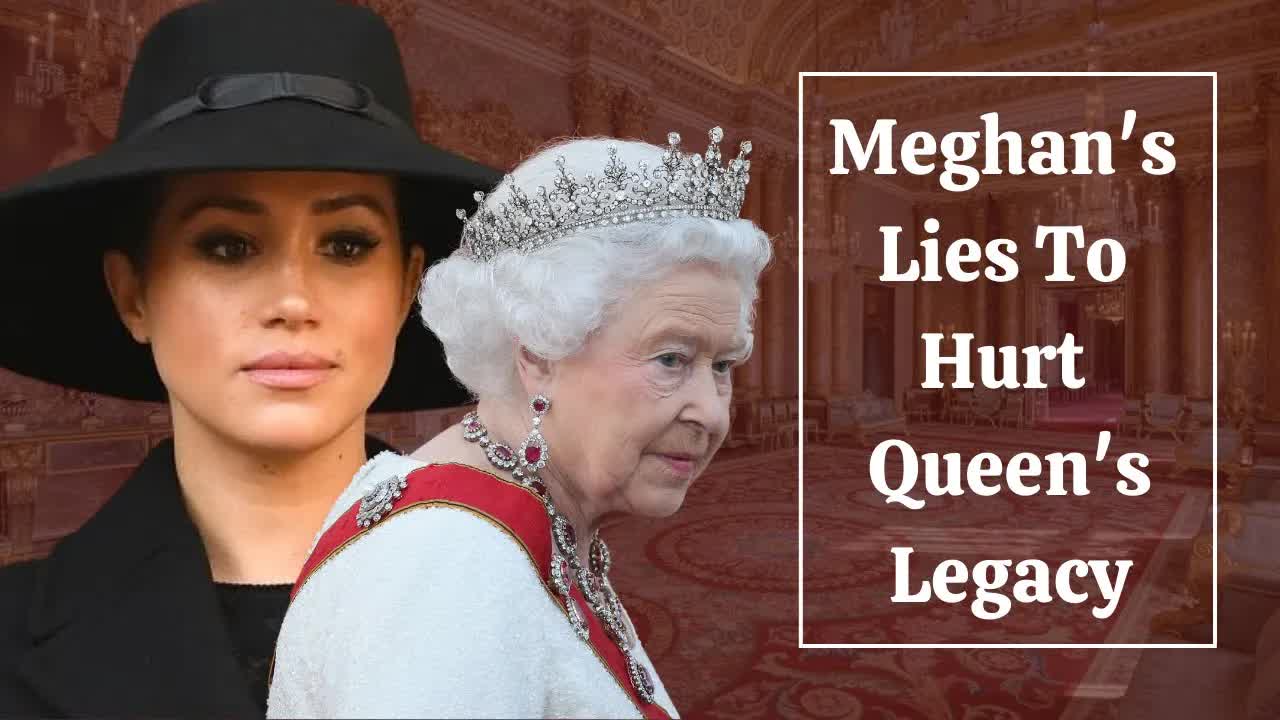In recent days, Prince Harry has stirred the pot with a statement that many believe reveals more than it conceals.
As fans of the royal family dissect his tribute to Queen Elizabeth II, questions arise about the motives behind it and whether it signifies a genuine reconciliation or merely a strategic move to maintain relevance in the media spotlight.
Harry’s statement, which he released alongside Meghan Markle, raises eyebrows.
Did he genuinely want to honor his grandmother, or was this an attempt to bolster his and Meghan’s public image?
It’s hard to shake the feeling that this tribute was less about heartfelt remembrance and more about keeping their names in the headlines.
After all, Harry’s relationship with the monarchy has been fraught with tension, and this gesture seems almost too calculated.
Let’s consider the timing.
Harry and Meghan were criticized for not introducing their children to the Queen while she was alive.
So why mention them now?
It feels like an attempt to rewrite history, painting themselves as dutiful grandchildren when, in reality, they chose to keep their distance during her final years.
This hypocrisy is glaring and, frankly, disappointing to those who have followed their journey closely.
Many Americans may view Harry’s tribute as a wholesome gesture, thanks to the filtering of narratives through entertainment media.
However, those familiar with the couple’s history might see it differently.
There’s a sense that Harry’s words are hollow, lacking the sincerity one would expect from someone paying homage to a beloved family member.
Instead, they appear to be a calculated move to reshape public perception.
Moreover, the mechanics of royal communications cannot be overlooked.
Statements like Harry’s are typically coordinated with the royal household.
This begs the question: what gives him the right to speak on behalf of the family after stepping away from royal duties?
It feels like an encroachment on territory he no longer occupies, and it raises concerns about their ongoing attempts to undermine the monarchy.
The narrative surrounding the monarchy is also being shaped by other voices, particularly in the U.S.
Recently, Uju Anya, a professor at Carnegie Mellon, made headlines for her scathing remarks about the Queen after her passing.
Anya’s comments reflect a growing sentiment among some Americans who view the monarchy through a critical lens, often overlooking the complexities of history in favor of sensationalism.
Anya’s article, titled “I Won’t Cry Over the Death of a Violent Oppressor,” embodies a broader critique of colonialism and its legacy.
However, her perspective risks oversimplifying a multifaceted issue.
While it’s crucial to acknowledge the darker chapters of history, it’s equally important to recognize the nuances of power dynamics and the roles played by various groups over centuries.
Critics of Anya’s stance, including prominent figures like Jeff Bezos, have pointed out the dangers of such sweeping generalizations.
It’s easy to vilify a single figure, but doing so can obscure the broader context of systemic issues that have persisted throughout history.
Anya’s refusal to acknowledge any positive contributions from the monarchy, particularly Queen Elizabeth’s efforts to foster relationships within the Commonwealth, further complicates her narrative.
The discourse around these topics is often charged with emotion, and understandably so.
Many people carry the weight of historical injustices, but placing blame solely on one individual does a disservice to the complexities of history.
Slavery and oppression are not confined to a single race or ethnicity; they are global phenomena that have affected countless communities across time.
As we reflect on the legacy of figures like Queen Elizabeth, it’s essential to approach the conversation with a balanced perspective.
Yes, there are valid critiques of colonialism and its impact, but reducing the discussion to a binary of good versus evil misses the opportunity for deeper understanding and healing.
Educators and public figures have a responsibility to provide comprehensive narratives that acknowledge both the good and the bad.
Misrepresentation only fuels division and misunderstanding.
If Harry and Meghan are to be seen as modern royals in America, they must navigate these discussions thoughtfully, avoiding the pitfalls of misinformation.
In the end, the legacy of the monarchy, like all historical narratives, is complex and multifaceted.
Moving forward requires a commitment to truth, education, and a willingness to engage with the past in a way that fosters understanding rather than resentment.
As we continue to witness the evolution of royal discourse, let’s hope for a more nuanced conversation that honors history while striving for a better future.










